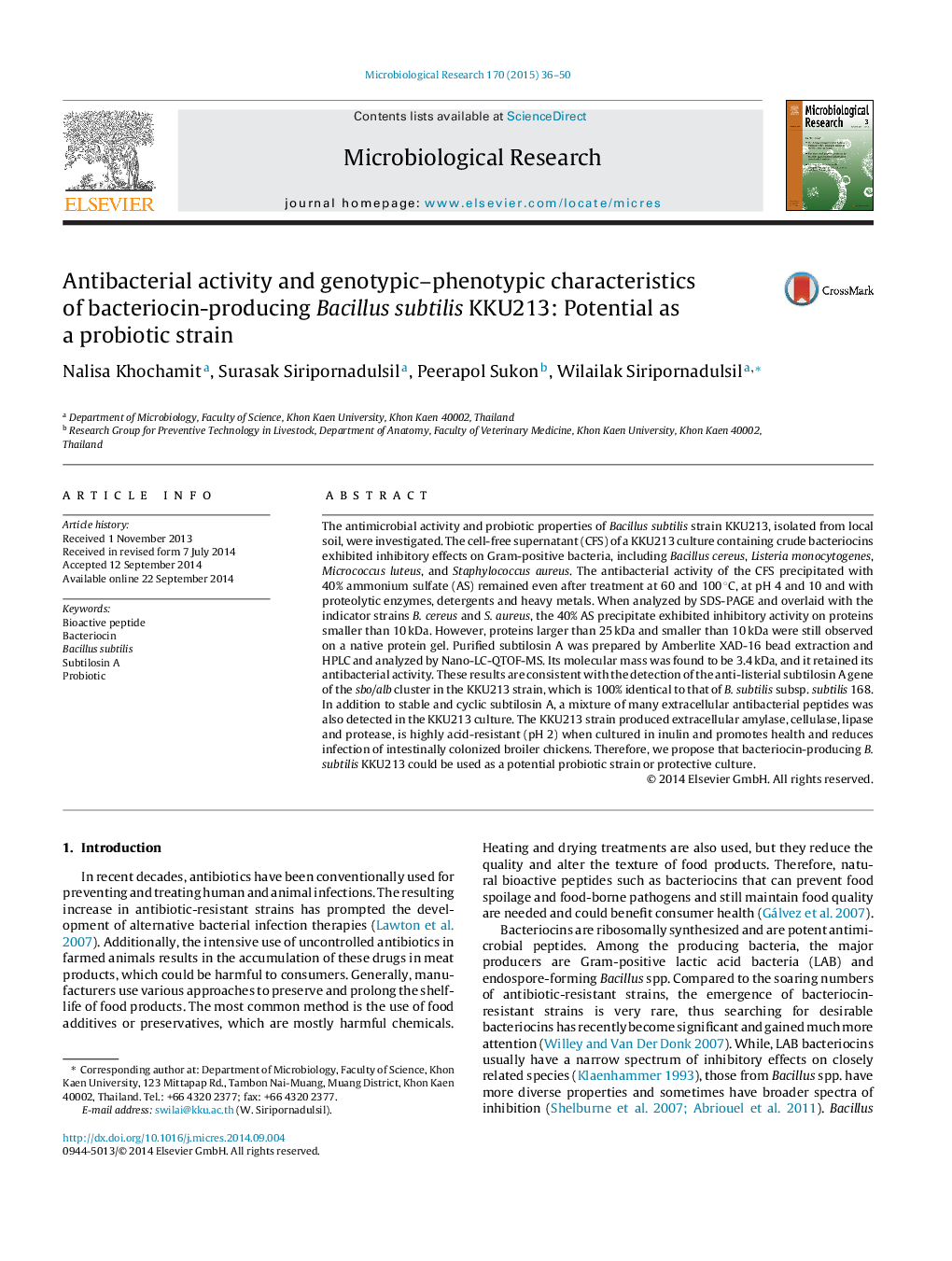| Article ID | Journal | Published Year | Pages | File Type |
|---|---|---|---|---|
| 2092121 | Microbiological Research | 2015 | 15 Pages |
The antimicrobial activity and probiotic properties of Bacillus subtilis strain KKU213, isolated from local soil, were investigated. The cell-free supernatant (CFS) of a KKU213 culture containing crude bacteriocins exhibited inhibitory effects on Gram-positive bacteria, including Bacillus cereus, Listeria monocytogenes, Micrococcus luteus, and Staphylococcus aureus. The antibacterial activity of the CFS precipitated with 40% ammonium sulfate (AS) remained even after treatment at 60 and 100 °C, at pH 4 and 10 and with proteolytic enzymes, detergents and heavy metals. When analyzed by SDS-PAGE and overlaid with the indicator strains B. cereus and S. aureus, the 40% AS precipitate exhibited inhibitory activity on proteins smaller than 10 kDa. However, proteins larger than 25 kDa and smaller than 10 kDa were still observed on a native protein gel. Purified subtilosin A was prepared by Amberlite XAD-16 bead extraction and HPLC and analyzed by Nano-LC-QTOF-MS. Its molecular mass was found to be 3.4 kDa, and it retained its antibacterial activity. These results are consistent with the detection of the anti-listerial subtilosin A gene of the sbo/alb cluster in the KKU213 strain, which is 100% identical to that of B. subtilis subsp. subtilis 168. In addition to stable and cyclic subtilosin A, a mixture of many extracellular antibacterial peptides was also detected in the KKU213 culture. The KKU213 strain produced extracellular amylase, cellulase, lipase and protease, is highly acid-resistant (pH 2) when cultured in inulin and promotes health and reduces infection of intestinally colonized broiler chickens. Therefore, we propose that bacteriocin-producing B. subtilis KKU213 could be used as a potential probiotic strain or protective culture.
